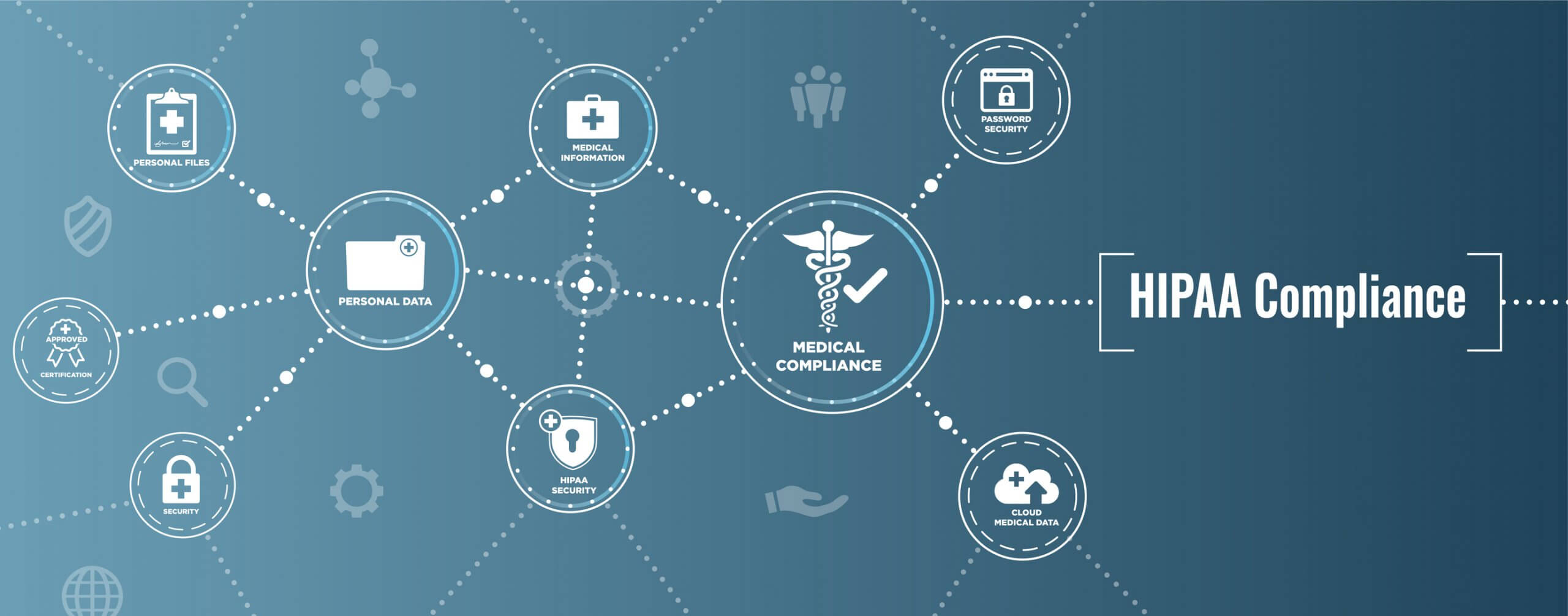The Health Insurance Portability and Accountability Act of 1996 (HIPAA) is a piece of legislation in the United States that ensures the security of all medical information for individuals.
Today, the top concern of healthcare organizations is compliance with HIPAA (the Healthcare Insurance Portability and Accountability Act of 1996). Its rules are meant to secure protected health information (PHI), whether electronic or manual.
To achieve HIPAA compliance, healthcare institutes and professionals must follow guidelines that ensure the security and protection of their patients. If unsure about the rules, they should consult the Chief Information Security Office for review.
HIPAA Compliant – A Checklist
The rules and regulations have changed, causing healthcare organizations many challenges. Its complex language has often created a hindrance that makes it hard for organizations to determine if their activities are correctly maintained according to HIPAA compliance. Healthcare organizations must address some specific rules by HIPAA, which are as follows:
- HIPAA Privacy Rule
- HIPAA Security Rule
- HIPAA Enforcement Rule
- HIPAA Breach Notification Rule
HIPAA Privacy Rule
The HIPAA Privacy Rule ensures that an individual’s healthcare information, including medical records and personal information (healthcare plans, insurance, and finances), is adequately protected. The goal is to provide security while allowing secure access to healthcare practitioners, but not without a patient’s authorization.
The rule balances information disclosure and protects an individual’s privacy. According to the HIPAA Privacy Rule, patients have full rights over their medical information, which means they can obtain their medical records or request a correction.
HIPAA Security Rule
The HIPAA Security Rule sets the national principles for safeguarding an individual’s electronic health information (EHI) as declared under the privacy rule. The Rule ensures the electronic PHI’s reliability, security, and confidentiality. Three types of safety measures fall under the HIPAA Security Rule: physical protection, Technical protection, and Administrative protection.
Physical Protection measures involve limiting access to facilities and implementing strict workstation security policies. Access Control ensures only authorized personnel can access electronic PHI, with removal carefully examined. Audit Control records hardware and software activities to prevent data misuse.
Administrative Protection includes appointing security officials, training employees on security measures, and regularly assessing security protocols for compliance. These measures collectively safeguard electronic PHI and ensure that only authorized personnel can access sensitive information.
HIPAA Enforcement Rule
The HIPAA Enforcement Rule requires all healthcare organizations to enforce the Privacy Rule. If any organization fails to comply with HIPAA, it must face penalties. There are several ways the OCR implements the Privacy and Security Rules:
- Investigation of complaints
- Determining whether healthcare organizations comply with HIPAA
- Educate organizations and provide substitute compliance if required
HIPAA Breach Notification Rule
Any organization that allows disclosure of healthcare information without authorization, under any circumstances, will be convicted of violating HIPAA rules. The organization must notify the secretary immediately if it discovers an information breach.
Conclusion
In conclusion, the Health Insurance Portability and Accountability Act of 1996 (HIPAA) is a cornerstone of safeguarding medical information and ensuring patient privacy within the United States healthcare system. Compliance with HIPAA regulations is paramount for healthcare organizations, necessitating a comprehensive understanding and implementation of its provisions. From the Privacy Rule to the Security Rule and the Enforcement Rule, healthcare entities must navigate a complex framework to protect protected health information (PHI) effectively.
Failure to adhere to HIPAA guidelines can result in severe penalties, emphasizing the importance of robust data security measures and diligent adherence to compliance protocols. By prioritizing HIPAA compliance and investing in necessary resources and training, healthcare organizations can uphold patient trust, mitigate risks, and safeguard sensitive medical information in an increasingly digital age.
 About Complete Controller® – America’s Bookkeeping Experts Complete Controller is the Nation’s Leader in virtual bookkeeping, providing service to businesses and households alike. Utilizing Complete Controller’s technology, clients gain access to a cloud platform where their QuickBooks™️ file, critical financial documents, and back-office tools are hosted in an efficient SSO environment. Complete Controller’s team of certified US-based accounting professionals provide bookkeeping, record storage, performance reporting, and controller services including training, cash-flow management, budgeting and forecasting, process and controls advisement, and bill-pay. With flat-rate service plans, Complete Controller is the most cost-effective expert accounting solution for business, family-office, trusts, and households of any size or complexity.
About Complete Controller® – America’s Bookkeeping Experts Complete Controller is the Nation’s Leader in virtual bookkeeping, providing service to businesses and households alike. Utilizing Complete Controller’s technology, clients gain access to a cloud platform where their QuickBooks™️ file, critical financial documents, and back-office tools are hosted in an efficient SSO environment. Complete Controller’s team of certified US-based accounting professionals provide bookkeeping, record storage, performance reporting, and controller services including training, cash-flow management, budgeting and forecasting, process and controls advisement, and bill-pay. With flat-rate service plans, Complete Controller is the most cost-effective expert accounting solution for business, family-office, trusts, and households of any size or complexity.




